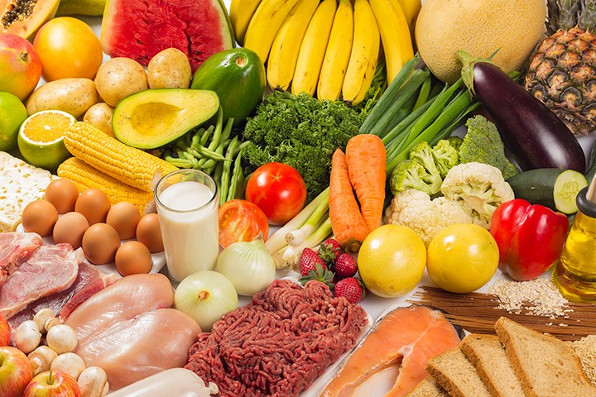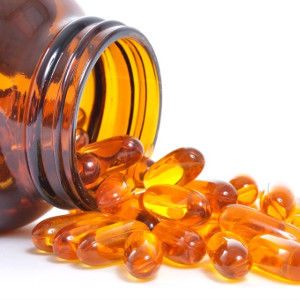Today we corral all the recent research news about Vitamin D – it’s benefits and the dangers associated with deficient D levels. Makes me glad I take a D supplement every morning. Because it appears that adequate D levels are just as important in later years as they are in childhood…
 Food sources of Vitamin D: Many of us still need supplements to reach the D level
Food sources of Vitamin D: Many of us still need supplements to reach the D level
that new research suggests promotes best health.
Girls with higher Vitamin D levels stronger
Studies of 881 5-year-olds in Denmark, by the University of Southern Denmark Faculty of Health Sciences, shows that female children with low Vitamin D are significantly more likely to have weaker muscles than those with levels at or above a certain level – 50 ng/ml. In fact, girls with D levels below average were found to be 70 percent more likely to be in the lowest 10 percent of their group, strength-wise. Oddly – and there’s no research on why – this dichotomy does not show up among boys.
Higher Vitamin D levels lower breast cancer risk
A University of California at San Diego study suggests that higher D levels can lower one’s risk of breast cancer. The study pooled data from two randomized clinical trials with 3,325 combined participants and a prospective study involving 1,713 participants. All women were age 55 or older with an average age of 63. Data were collected between 2002 and 2017. Participants were free of cancer at enrollment and were followed for a mean period of four years. Vitamin D levels in blood were measured during study visits.
Over the course of the study, 77 of the women developed breast cancer. Comparing their vitamin D levels with those of study participants who did not develop cancer, researchers determined that a healthy level of D which appears to protect against breast cancer should be about 60 mg/ml, somewhat higher than the current 20 ng/ml recommended by official authorities.
Higher D levels also associated with lower colon cancer risk
The American Cancer Society reports a new study authored by scientists from more than 20 medical centers and organizations finds that higher circulating vitamin D concentrations are significantly associated with lower colorectal cancer risk. The analysis included over 5,700 colorectal cancer cases and 7,100 controls from the United States, Europe, and Asia.
Compared to participants with circulating vitamin D concentrations considered sufficient for bone health, those with deficient concentrations of vitamin D had a 31% higher risk of colorectal cancer during follow-up, which averaged 5.5 years (range: 1 — 25 years). Similarly, concentrations above bone health sufficiency were associated with a 22% lower risk. However, risk did not continue to decline at the highest concentrations. These associations persisted even after adjusting for known colorectal cancer risk factors. Protective associations were seen in all subgroups examined.
My take…
It all adds up to one conclusion: We should all probably be getting more Vitamin D than we normally do. We’ve long known that natural D levels are dependent on a number of factors, including diet and exposure to sunlight. But the farther north you live, the less sunlight you get, and that can lead to chronic D deficiency. My family doctor suggests that everybody north of the 45th parallel should take an extra 2,000 units of D a day to make up for our natural sunlight deficiency and any shortfall due to our diets. I’m following her recommendation.
~ Maggie J.

